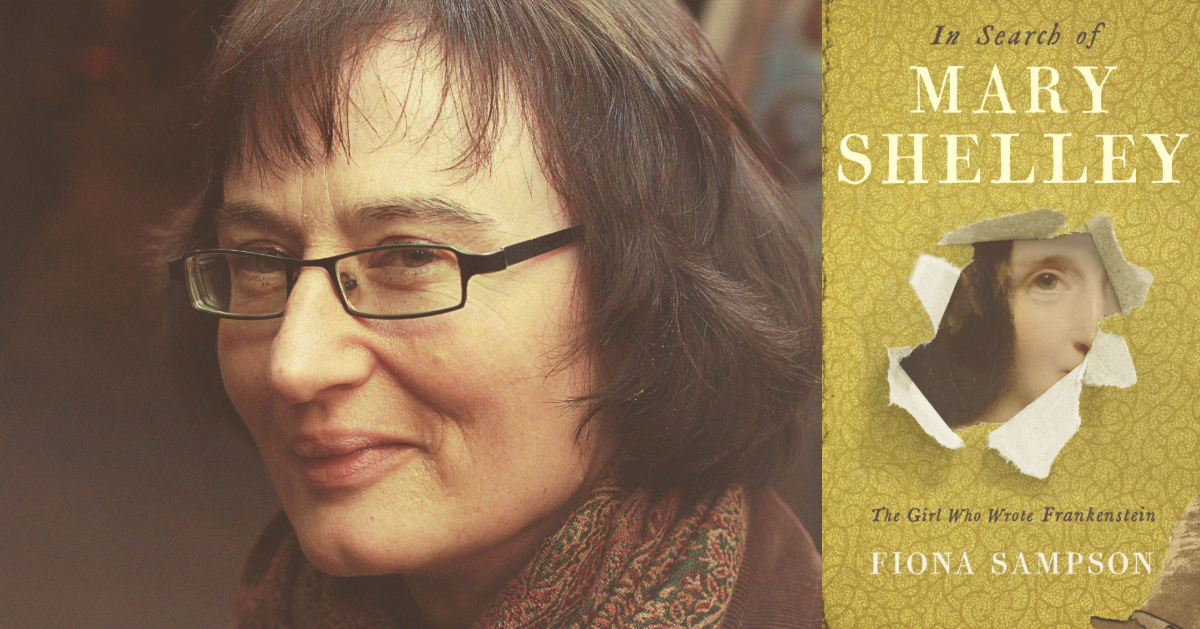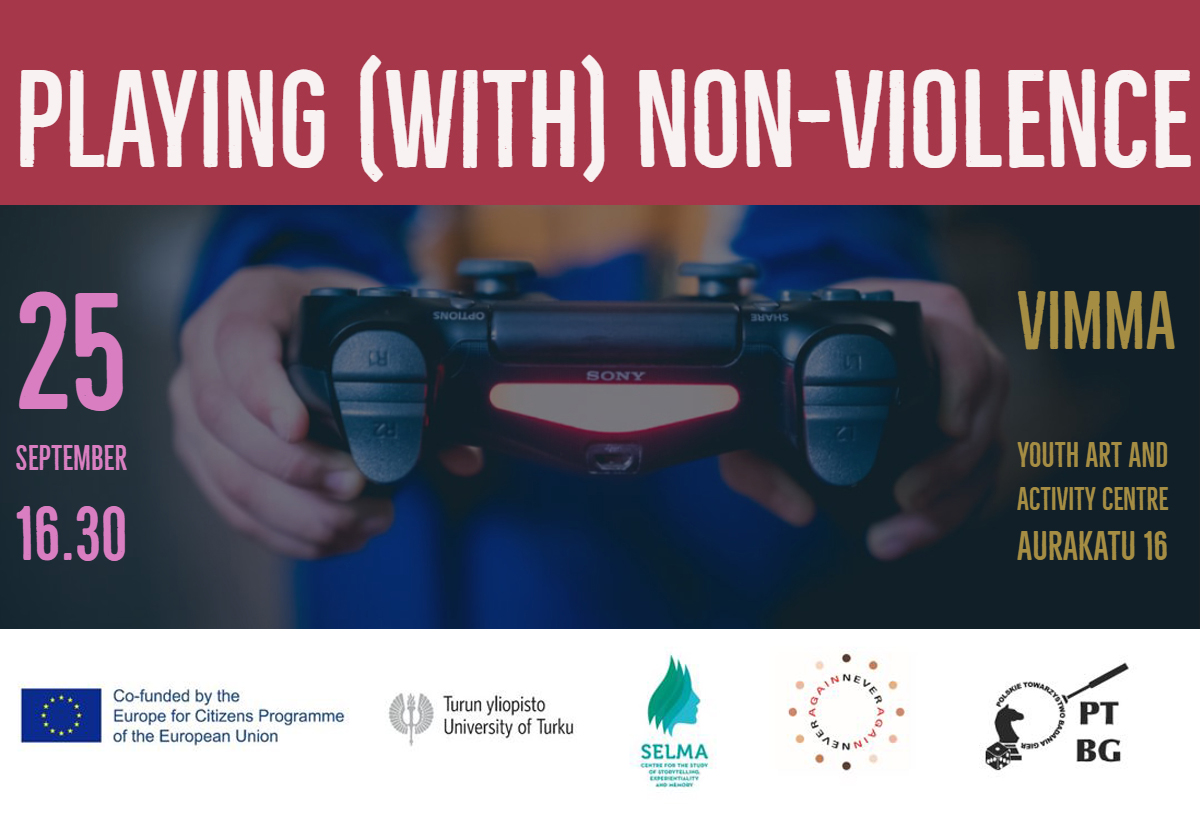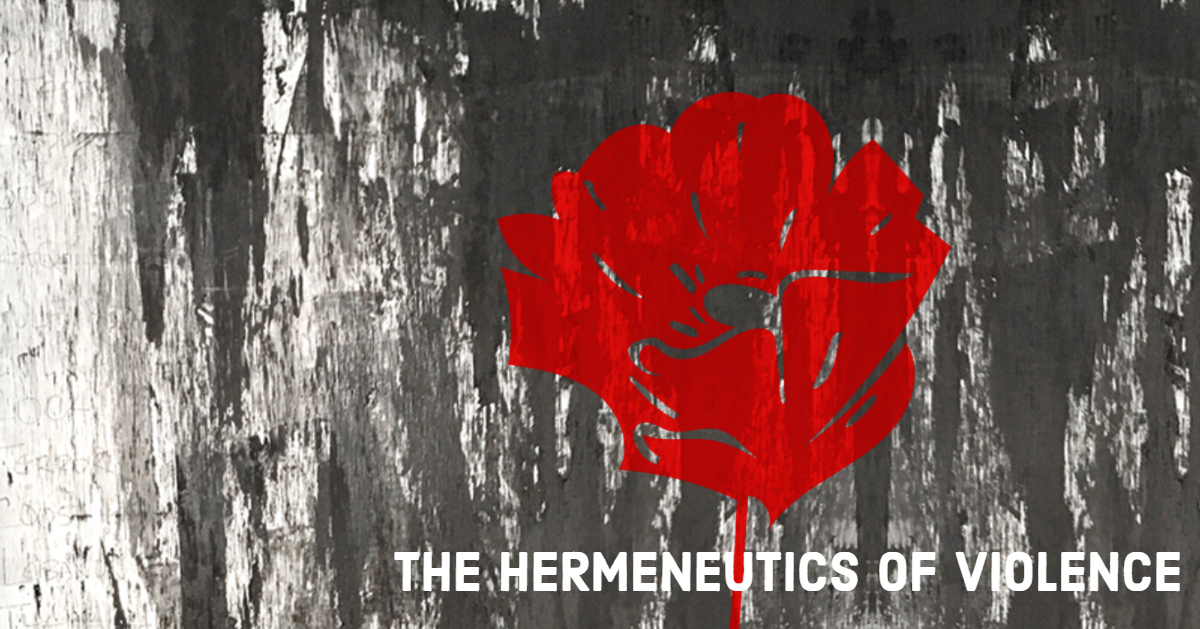Past events – 2019
SPRING
14-16 February – Uses & Abuses of Storytelling: Theorizing the Intersections of Narrative, Memory and Identity
Conference. University of Turku, Artium & Minerva, Kaivokatu 12.
While both interdisciplinary narrative studies and cultural memory studies have boomed in the twenty-first century and are continuing to expand in new directions, there is lamentably little dialogue between them. This symposium aims to bring discussions in these two fields into a more intensive dialogue by theorizing the intersections of narrative, memory and identity. Read more…
Full programme is available here.
Monday 18 March – Kulttuurinen muisti -tutkimuspäivä (IN FINNISH)
Research day. OP-sali (Turun kauppakorkeakoulu)
Kutsumme tutkijoita ja tutkimusryhmiä kaikilta tieteenaloilta keskustelemaan yliopiston temaattisesta alueesta ”kulttuurinen muisti ja yhteiskunnan muutos” keskittymällä erityisesti kulttuurisen muistin käsitteeseen. Aamupäivällä (klo 10-12) tutkijat ja tutkimusryhmät esittelevät 5 minuutin puheenvuoroilla, minkälaisten suurten kysymysten kautta he lähestyvät kulttuurista muistia. Iltapäivän työpajassa (klo 13-16) tutkijat pitävät 10-15 minuutin puheenvuoroja kulttuurisesta muistista. Työpaja tähtää kulttuurista muistia käsittelevään julkaisuun. Ilmoittautuminen 28.2. mennessä.
Further information and a registration form, here.
Tuesday 9 April 15-17 – Encounters Between French Literature and Film
Seminar. Historicum (University of Turku), Aikala.
In this seminar, two new postdoctoral researchers of SELMA, Marta Laura Cenedese and Avril Tynan, present their new projects that deal wtih French literature and film. Both speakers give a 30-minute talk, followed by 30 minutes of joint discussion.
The Failures of Film: Reimagining Irène Némirovsky’s Suite française (Marta-Laura Cenedese)
This presentation will address the complex interplay between Irène Némirovsky’s novel Suite française (1940–42/2004) and its film adaptation (Suite Française, dir. Saul Dibb, 2015). Marta’s argument is that the film tries to ‘correct’ and ‘make right’ certain perceived ‘failures’ of the novel, thus limiting its nuanced ethical potential for the sake of a safe and ‘established’ post-Holocaust narrative that misleads viewers’ postmemory of the events.
Fathers in Francophone Literature and Film since 1945 (Avril Tynan)
In this talk ‘Father or Failure: Fathers in Francophone Literature and Film since 1945’, Avril will present the theoretical and methodological outlines of her postdoctoral project, drawing on research in the fields of gender and narrative studies.
Marta Laura Cenedese is a Postdoctoral Researcher in comparative literature at the Turku Institute for Advanced Studies. She previously studied at the University of Venice Ca’ Foscari, Sciences-Po Paris, and the University of Cambridge. Her research deals with twentieth- and twenty-first century literature, narrative studies, transnational writers, multimodal storytelling, and life-writing.
Avril Tynan is a postdoctoral researcher in comparative literature at TIAS where she is working on her project ‘Father or Failure: Fathers in Francophone Literature and Film since 1945’. Her background is in French literature and Holocaust studies, and she has published on the ethics and aesthetics of Holocaust narrative. She has previously taught French language and culture at Royal Holloway, University of London.
Friday 12 April – Archives, communities and activism
Seminar. Minerva (University of Turku) seminaarisali E225.
The speakers and participants will discuss intersections of archives, communities, activism, participation, silences, power, and oral history.
SPEAKERS
Rachel F. Seidman, Visiting Fulbright Scholar, Director, Southern Oral History Program at the University of North Carolina
Katherine Borland, Visiting Fulbright Professor, Associate Professor and Director of the Center for Folklore Studies, the Ohio State University
Tuula Juvonen, Research fellow at Turku Collegium, University of Turku
Seminar is organized by Master’s degree studies of Records and Archives Management & The Archives of History, Culture and Arts Studies. For more information, please contact Kirsi Hänninen, kimaha@utu.fi.
Saturday 4 May 10-16 – Breaking the Silence
Workshop. Koroinen (Koroistentie 2, Turku)
AgainNeverAgain event in collaboration with StepEurope
This all day interactive workshop will combine visual, digital and traditional storytelling to address the collective silences in transnational and transgenerational collective silences. The outcomes will be presented during the symposium “Remembrance, Trauma Transmission & Experiential Learning” in May in Turku. Families and individuals are welcome. Light lunch will be served. For inquiries please contact: ronjatuulia@stepeurope.org.
Wednesday 15 May 12-16 – Literature, Ethics & Wellbeing
Seminar. Minerva E221 (University of Turku, Kaivokatu 12),
In this joint seminar organised by SELMA and LaWe (Centre for the Study of Language and Wellbeing), we explore various ways of understanding the potential of literature to promote wellbeing. We are interested in wellbeing in a broad, cultural sense and will discuss its links to ethical issues such as issues of ethical agency and ways of engaging with otherness. Speakers of the seminar include the visiting professors Colin Davis and Lydia Kokkola.
22-23 May – Reading Culture and Libraries in Change
Conference. University of Turku (Sirkkala Campus)
Reading culture is changing rapidly today. Radical developments in use of time, values and attitudes towards reading in contemporary Western 24-h society as well as changes in book publishing and marketing have influenced our reading habits, which have been subject to major changes also due to the impact of digitalization and new reading technologies and platforms. The conference “Reading Culture and Libraries in Change” seeks for answers to the changes in reading cultures and library use, and for new ways of exploring these changes. The conference consists of keynote lectures and sessions by researchers from all career stages.
For more information & programme, see here.
Friday 24 May 12.15-17 – Mitä on romanttinen mieli? (IN FINNISH)
Seminar. Janus Auditorium (University of Turku, Minerva, Kaivokatu 12),
Kolmas tila ry:n, SELMA-keskuksen ja yleisen kirjallisuustieteen yhteinen seminaari. Mitä on romanttinen mieli? Millaisia ajatuksia liitetään romantiikan ajan taiteeseen? Entä romantiikan ajatusmaailmaan, elettyyn todellisuuteen ja filosofiaan? Millaisia merkityksiä ihminen ja yksilö saivat romantiikan aatemaailmassa ja taiteessa? Millaista romantiikka oli Turussa? Mitä romantiikan aikana pelättiin, toivottiin, vieroksuttiin tai pidettiin tavoiteltavana?
Mitä on romanttinen mieli –seminaari pohjustaa vuonna 2020 ensi-iltansa saavaa, Kolmas tila ry:n suurtyötä Romanttinen mieli, jonka käsikirjoittaa Seppo Parkkinen ja ohjaavat Susanna Airaksinen ja Juha Malmivaara. Musiikin säveltävät Ulf Långbacka ja Kari Mäkiranta.
OHJELMA
12.15 Avaussanat Kaisa Ilmonen ja Seppo Parkkinen
12.30-13.00 Hannu Salmi: ”Tulikoe — Turku, tunteiden palo ja romantiikka”
13.00-13.30 Panu Savolainen: ”Romantiikka, tila ja arkkitehtuuri”
13.30-14.00 Jukka Sarjala: ”Turun romantiikka – nuorison kapina?”
14.00-14.30 KAHVI
14.30-15.00 Heli Rantala: ”Romantiikka entropiana?”
15.00-15.30 Tero Vanhanen: ”Verenpunaista romantiikkaa: Byronin ja Polidorin epäkuolleet intohimot”
15.30-15.40 TAUKO
15.40-16.10 Asko Nivala: ”Romanttinen kartografia: Tilallisuus saksalaisessa ja brittiläisessä romantiikassa”
16.10-16.40 Jouni Teittinen: ”Ralph Waldo Emerson ja mielen kasvillisuus”
16.40-17.00 Loppukeskustelu, päätössanat ja kommenttipuheenvuoro: Asko Nivala
27-29 May – Remembrance, Trauma Transmission & Experiential Learning
Symposium. University of Turku (Minerva, Kaivokatu 12)
This interdisciplinary international symposium seeks to bring together a group of scholars, artists, activists, practitioners, experts from memorial sites and museums, and other engaged individuals to reflect on the concealed hatreds, prejudices, and normalized oppressions that are learnt through unhealed and transmitted traumas, which are perpetuated daily through seemingly harmless everyday practices. It also seeks to determine how we can successfully break this pattern through systematic experiential learning.
For more information & programme, see here.
Friday 14 June – Kertomuksen tutkimuksen päivä (IN FINNISH)
Janus Hall & Minerva seminar rooms, University of Turku.
AUTUMN
Friday 22 November, 12.00–15.00 – New Perspectives in/on Oral History and Memory
Event organized in collaboration with the Academy of Finland postdoctoral project Memory Unchained (SA 308661)
University of Turku, Kaivokatu 12. Minerva, room E223
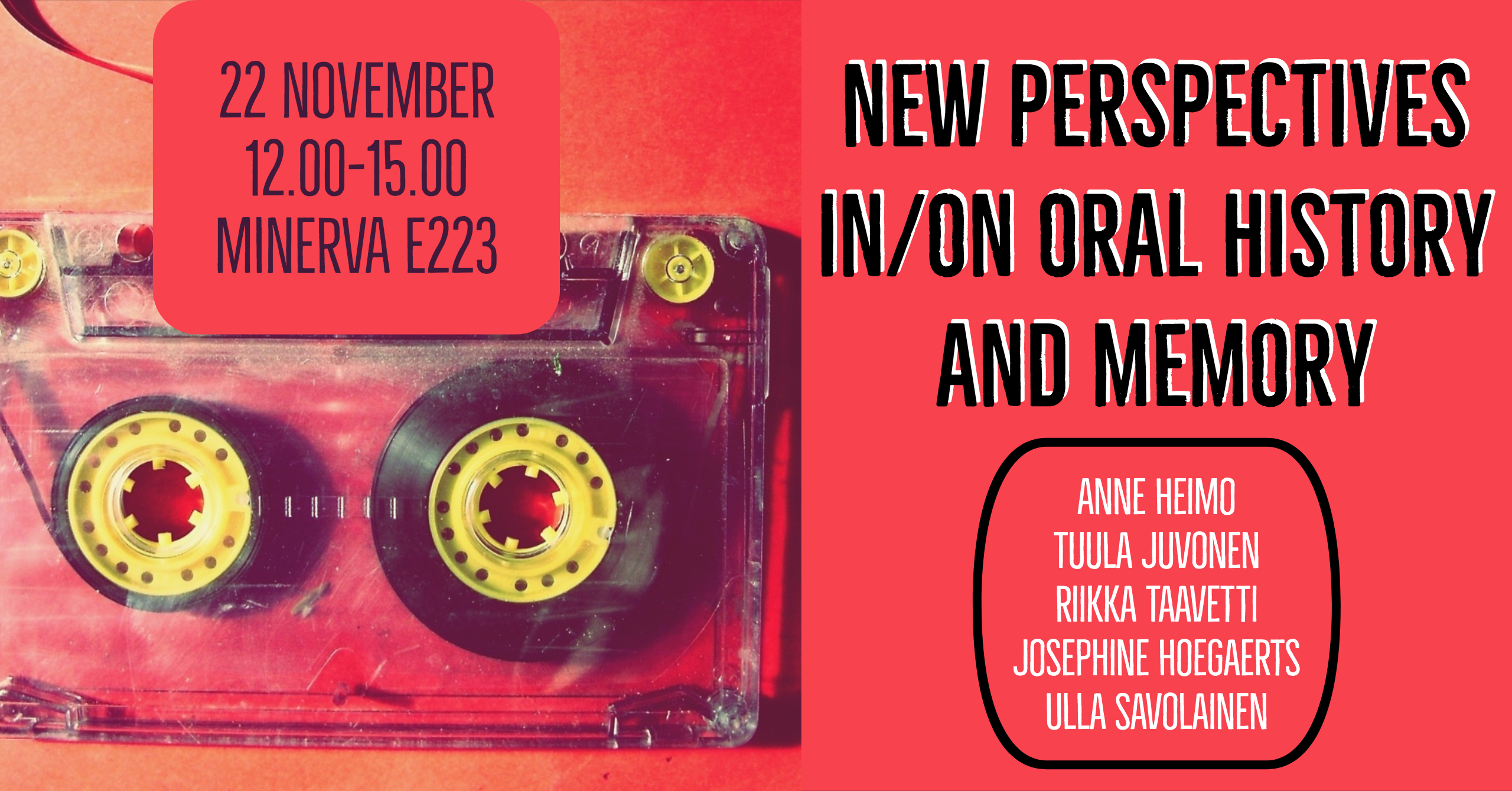
Oral history refers to a research field that focuses on memory as a subjective, communicative, and social faculty with a radical emancipatory potential. Moreover, oral history refers to practices of generating historical information by means of interviewing and to interpretations of history based on this information. As a field, oral history research has already reached the status of an established multidisciplinary enterprise. Considering the radical and critical roots of oral history, however, critical interrogations of its premises – such as its strong emphasis on verbal and textual dimensions of memory and its position vis-à-vis various other related disciplines (e.g. memory studies, queer history) – remain scarce. This seminar organized by Selma and the Academy of Finland post-doctoral project Memory Unchained (SA 308661) will focus on new perspectives in and on oral history and memory from various methodological and disciplinary perspectives. SEMINAR SCHEDULE: 12.00–12.15 Anne Heimo: Introduction 12.15–12.45 Tuula Juvonen: Different Means to Conduct Oral History Interviews 12.45–13.15 Riikka Taavetti: Frictions and Connections between Queer History and Oral History Coffee break 13.30–14.00 Josephine Hoegaerts: Voices that Matter? On the Emancipatory Potential of Uncovering and Analysing the ‘Materiality’ of Voice 14.00–14.30 Ulla Savolainen: Modes, Mediums, and Ideologies of Memory 14.30–15.00 Discussion ABOUT THE SPEAKERS: Anne Heimo is Professor of Folkloristics at the University of Turku and a member of the steering group of SELMA. Her research interests include oral history, memory studies and life writing. She is currently studying family memories on social media. https://www.utu.fi/en/people/anne-heimo Tuula Juvonen works as Collegium Research at the University of Turku, Finland. She has previously studied emerging lesbian communities and the changing position of homosexuality in Finnish society. Her current project The Materialisation of Affective Attachments focuses on sexualities and genders in flux. https://www.uta.fi/yky/yhteystiedot/henkilokunta/tuulajuvonen/index.html Riikka Taavetti works as postdoctoral researcher in political history at the University of Helsinki and as visiting scholar at Södertörn University, Sweden (autumn term 2019). Her current work on the history of Finnish sex research is part of in research project titled Power, Politics, and Sexuality (funded by the Kone Foundation, PI Hanna Kuusi). Taavetti defended her doctoral dissertation on queer personal and cultural memories in Finland and Estonia in 2018. Her research interests include queer history, history of sexuality, oral history, cultural memory studies, archival science, and history of feminism. Personal webpage: http://riikkataavetti.fi/ Josephine Hoegaerts is Associate Professor of European Studies at the University of Helsinki. Her research focuses on the history of the human voice, cultural practices and politics of vocalization, and the different discourses and meanings attached to speech and song. She leads the project ‘CALLIOPE: Vocal Articulations of Identity and Empire’ on the sounding practices of oratory and political transfer in the British and French Empires. Recently, she authored ‘Women’s Voices in Educational Manuals. The Gendered Sounds of Speech Therapy, Song and Education in Europe, c.1830–1900’, Women’s History Review (2019). She has also co-edited several journal issues on sound, music and silence. https://researchportal.helsinki.fi/en/persons/josephine-hoegaerts Ulla Savolainen is an Academy of Finland post-doctoral researcher at the University of Helsinki, Folklore Studies and a visiting researcher at the University of Turku for the fall semester 2019. Her ongoing research ”Memory Unchained” (2017–2020) focuses on literature related to experiences of Ingrian Finns from the perspective of cultural memory. Her doctoral dissertation analyzed the life writings of former Karelian child evacuees in Finland. She has also researched oral histories related to internments of German and Hungarian citizens in Finland in 1944–1946 and the issues of retrospective justice and compensation. Savolainen is the chair of the Finnish Oral History Network FOHN. https://researchportal.helsinki.fi/en/persons/ulla-savolainen Wednesday 13 November, 15.00–19.00 – A Touch of the Past/Menneen Kosketus (IN FINNISH) Event organised in collaboration with Centre for Artistic Research and the History forum (University of Arts), Helsinki How are we, as researchers, touched by people from the past, and how could we, in turn, touch our audiences? How to transform a monument into a human being, Jean into Janne? And what if someone from the past sent us a letter, what would we reply? We welcome people to discuss these questions in a “salon” of artists and researchers at the Theatre Academy on Wednesday, November 13 at 15:00–19:00. The event is organized in collaboration with the Uniarts History Forum and Turku University’s research centre SELMA (Centre for the Study of Storytelling, Experientiality and Memory). The speakers include the music researchers Susanna Välimäki, Anne Kauppala, Ulla-Britta Broman-Kananen and Timo Virtanen, the cultural historian Kirsi Tuohela and CfAR’s postdoctoral researcher Elina Saloranta, who will introduce her historical pen-pal Elli Forssell-Rozentāle (1871–1943). Tuesday 5 November, 13–15 – Queering the Trenches: The Homoerotic Accents in François Ozon’s Frantz (2016) Lecture by Helena Duffy, Turku Institute for Advanced Studies Helena Duffy is Collegium Researcher at the Turku Institute for Advanced Studies, where she is working on a project focused around literary representations of Jewish mothers during the Holocaust. While mainly concerned with the way the Nazi genocide and, more broadly, military conflict have been portrayed in contemporary literature, her research has addressed other aspects of French culture, including the cinema of Lidia Bobrova and Andrzej Żuławski, or Madame de Lafayette’s 17th–century novel La Princesse de Clèves. Helena Duffy is the author of a monograph entitled World War II in Andreï Makine’s Historiographic Metafiction (Brill, 2018) and of thirty journal articles, essays and book chapters. In her career, she has taught French language and culture at universities in Poland (Wrocław), Australia (UQ, UNE), France (Blaise–Pascal, Clermont–Ferrand) and UK (Hull, Oxford Brookes, Royal Holloway). Thursday 31 October, 14–16 – Quitting (the) Habit: Fossil Fuels, Governmentality and the Politics of Energy Dependency Guest lecture by Prof. Imre Szeman, University of Waterloo Event in collaboration with Turku Institute for Advanced Studies (TIAS) Imre Szeman is University Research Chair and Professor of Communication Arts at the University of Waterloo. He conducts research on and teaches in the areas of energy humanities, environmental studies, critical and cultural theory, social and political philosophy, and Canadian studies. His most recent work has focused on energy humanities and petrocultures, with several books books on the subject published in recent years, including On Petrocultures: Globalization, Culture, and Energy (2019) and Energy Culture: Art and Theory on Oil and Beyond (2019). More information here: http://imreszeman.ca/ Round Table with Imre Szeman, Olga Cielemecka, Heikki Sirviö, Tere Vaden, Lieven Ameel Olga Cielemecka is a postdoctoral researcher in Gender Studies at the Turku Institute for Advanced Studies. Her project is titled “The future of the forest: Engendering environmental politics in the Białowieża Forest, Poland.” Olga works at the intersection of gender studies, feminist philosophy, and environmental humanities. She write about contemporary environmental challenges in broader political, ethical, and multispecies contexts. Heikki Sirviö is a postdoctoral researcher in the Geography Research Unit at the University of Oulu. His current research efforts focus especially on geopolitics of economic imaginaries and new possibilities for radical geography. Tere Vaden is a philosopher associated with the interdisciplinary BIOS research unit. In his work, he has looked at the material and intellectual underpinnings of politics and culture, in particular the experiential dimensions of energy. Lieven Ameel is TIAS collegium researcher. His research project ”Imagining City Futures across Genres – New York, Antwerp, Helsinki 1990-2020” examines ways to imagine futures in planning, policy, and fiction. Professor Szeman’s visit takes place in the context of the research project ”Imagining City Futures across Genres” – more information here: https://blogs.helsinki.fi/urbannarratives/ Wednesday 16 October, 14–19 – Politics of Narrative and Memory Minerva E221 (University of Turku, Kaivokatu 12) This workshop will explore the political dimensions of narrative practices and forms of memory. It examines how memory cultures and cultural narratives shape the way in which people see the political world and the possibility of political change. The speakers of the workshop are Molly Andrews and Eneken Laanes who are currently visiting scholars at the Helsinki Collegium for Advanced Studies. WORKSHOP SCHEDULE: 14.15–15 Conflictual Narratives of National Belonging (Molly Andrews) The process by which a formal national identity becomes internalised, that is to say ‘owned’ by an individual in such a way that it becomes part of their self-definition, is complex. This paper will explore how individuals communicate their sense of national belonging (or lack thereof) through the stories they tell about themselves, as people who live in particular cultures and who must negotiate their way through particular historical moments. While much literature on national identity of individuals has focused on explicit talk about national characteristics (ascribing them to one’s own group, and to others), this is not the only way in which people communicate their sense of what it means to be a member of their community. Often it is in the parenthetical throw-away lines that an individual will reveal an important aspect of what their national identity means to them, and how this evolves over time. The paper will draw on data from Britain, East Germany, United States and South Africa, and will relate these to discourses of national belonging which have evolved in the post-factual Brexit/Trump world. 15–15.15 Coffee break 15.15–16 Cultural Memorial Forms (Eneken Laanes) In recent years many scholars in memory studies have tried to think about the role of memorial forms in the articulation and travel of memories. Ann Rigney has argued that there is often a gap between historical experiences and memorial forms that are available in that historical and cultural moment for giving public expression to these experiences. The repertoire of memorial forms is scarce, culturally and historically specific and continues to evolve in time. In order to come to terms with the scarcity, older forms may be recycled or memorial forms can be borrowed and appropriated from other cultures. There are various other concepts that have been developed to try to capture the enabling role of something like memorial forms in mediating and articulating experiences such as genre memory (Olick), conventionalised genres and formats (Erll), memory schemata (Hoskins), frames of memory (Halbwachs, Bond). Depending on the disciplinary histories these authors draw on, some of them conceive memorial forms more in terms of figures, tropes and images, the others as schemata and (narrative) templates. In my presentation I will discuss these attempts to conceptualise the role of memorial forms and illustrate their use in the Eastern European memory cultures. 16–16.15 Coffee break 16.15–17 Discussion 17–18 Drinks ABOUT THE SPEAKERS: Molly Andrews is Professor of Political Psychology, and Co-director of the Centre for Narrative Research (www.uel.ac.uk/cnr/index.htm) at the University of East London, and currently the Jane and Aatos Erkko Visiting Professor at the Helsinki Collegium for Advance Studies. Her research interests include political narratives, the psychological basis of political commitment, political identity, and patriotism and intergenerational dialogue. Her books include Lifetimes of Commitment: Aging, Politics, Psychology Shaping History: Narratives of Political Change (both Cambridge University Press), and Narrative Imagination and Everyday Life (Oxford University Press). She serves on the Editorial Board of five journals which are published in four countries, and her publications have appeared in Chinese, German, Swedish, Spanish, Czech, and German. Eneken Laanes is a Senior Researcher at the Under and Tuglas Literature Centre of the Estonian Academy of Sciences, Associate Professor of Comparative Literature and Cultural Analysis at Tallinn University and currently the KONE fellow at the Helsinki Collegium for Advanced Studies. Her research interests include transnational memory, trauma studies, post-socialist memory cultures in Eastern Europe, the historical novel, critical theory and cultural analysis, contemporary literature. She is the author of Unresolved Dialogues: Subjectivity and Memory in Post-Soviet Estonian Novel (in Estonian, Tallinn, UTKK, 2009) and co-editor of Novels, Histories, Novel Nations: Historical Fiction and Cultural Memory in Finland and Estonia (Helsinki: SKS, 2015). Laanes is the coordinator of the Nordic research network Narrative and Memory: Ethics, Aesthetics, Politics (with Hanna Meretoja, http://www.narrativeandmemory. com). In 2020–2024 she will work on her ERC Starting grant project “Translating Memories: The Eastern European Past in the Global Arena”. Monday 7 October, 14–16 – A Daedalus for the Romantic Era? Mary Shelley’s Frankenstein THIS EVENT HAS BEEN CANCELLED. Seminar by Fiona Sampson, Roehampton University, London Popular and high cultures alike celebrate the enduring archetypes Mary Shelley created in her 1818 novel Frankenstein. The over-reaching scientist who takes no account of the social or ethical consequences of his research, and the nearly human he creates, have been transformed into hugely entertaining clichés. They also remain indispensable in helping us make sense of the scientific, technological and medical innovations of our era. But, while Frankenstein and his creature are known today across the developed world, older myths work in parallel, revealing societies’ recurring ambivalence about the innovative individual who may hold our life in his hands. Particularly analogous is the story of Daedalus, who represents the Trickster potential of an exceptional talent. Mary Shelley will have known this Classical myth. Daedalus – who despite many great inventions is also proxy progenitor of the Minotaur, and creator of both the Labyrinth and the wings that will kill his own son Icarus – represents the intrinsically hubristic character of even benign innovation. Rereading these myths side by side allows us to unearth some of the social anxiety generated by technological and political innovation in the Romantic era. Professor Fiona Sampson has published twenty-seven books and been translated into thirty-seven languages. She’s a Member of the Order of the British Empire for Services to Literature and a Fellow of the Royal Society of Literature, Fellow of the English Association and Fellow of the Wordsworth Trust. She holds the Chair of Poetry at Roehampton University, London; she is also a critic, librettist and editor. From 2005-12 she was the Editor of Poetry Review, the UK’s oldest and most widely read poetry periodical. Her prizes include the Newdigate Prize, Cholmondeley Award, Hawthornden Fellowship, and honours from Arts Council England, Arts Council Wales, the Society of Authors, the Poetry Book Society and the Arts and Humanities Research Council, and international awards in the US, India, Macedonia and Bosnia. In Search of Mary Shelley (2018) has been internationally critically acclaimed. Wednesday 25 September, 16.30–19.45 – Playing (with) non-violence Vimma (Aurakatu 16, Turku) The event is organized in cooperation with University of Turku (Turku Institute for Advanced Studies & Selma Centre for the Study of Storytelling, Experientiality and Memory) and Vimma, Youth Art and Activity Centre. It is funded by European Commission as a part of the project Again Never Again: Teaching Trauma Transmission through Experiential Learning. Playing videogames has always been tied to controversial speculations and assumptions about its negative impact, from the promotion of violence to fostering aggressive behaviour, particularly among youth. But is there an enjoyable and healthy way of playing games? In what way can video or board games be a useful learning tool, promoting non-violence and various other skills like problem solving, multiperspectivity in history education, team work, coordination and negotiating in international affairs? Find an answer by joining us to disscuss and explore educational potentials of (video)games and to learn-by-playing together with experts! WORKSHOP SCHEDULE 16.30 Welcome by Nena Močnik and Maria Garda (University of Turku, AgainNeverAgain Project) 16. 45 OPENING WORD: Monstrous Gamers: Videogames, Violence and US Politics (Tom Apperley, Tampere University) In a recent controversial tweet, condemning gun violence in the USA, the US President blamed video-games for glorifying violence and creating a generation of ‘monsters.’ Gamer culture immediately highlighted the foolishness and hypocrisy of Trump’s statement. This talk further explores this critique of Trump through the history of the US videogames industry and Trump’s own communication practices. The role of US government and politics in shaping how violence is presented in videogames must be understood against the backdrop of the many historic and emerging, popular and non-violent genres of videogames. While the violence of the shooters that Trump condemns is reprehensible, he also makes use of the divisive and hateful communication practices first popularized by gamergate. Trump’s characterization of gaming as ‘monstrous’ elides his own role in producing an environment of anger, fear and hate where immigrants are scapegoated and victimized. 17.15-17.30 Coffee & Cakes 17.30-18.00 ‘Game Fair’: Learning non-violence through (video)games 18.00-19.30 Play! Learning & Playing games with facilitators 19.30-19.45 Wrap-up and Closing 27–29 August – The Hermeneutics of Violence -workshop This workshop is part of a larger project entitled Interpreting Violence: Narrative, Ethics and Hermeneutics, funded by the Joint Committee for Nordic research councils in the Humanities and Social Sciences (https://site.uit.no/violence/). The project begins with the assumption that the representation of violence in literature, film, history and journalism is an inherently ethical issue because it invites readers or viewers to imagine someone else´s pain. A story may encourage a reader/viewer to place herself in the position of victim, perpetrator, witness or rescuer. She may imagine the events narrated in the manner invited by the text or in a resistant fashion, but by engaging a depiction of violence at all, she deems it a pleasant or ethically worthwhile use of time and thought. The project investigates this phenomenon in two workshops. The first workshop, ”The Joys of Violence” was held at Uppsala University September 19-21 2018. ”The Hermeneutics of Violence” is the second workshop, to be held at Turku University August 27-29 2019. It will focus on the hermeneutics of violence, implying both the violent annulment of personhood sometimes inherent in interpretive acts themselves and the processes of interpreting narratives representing violence. In ”Violence and Metaphysics”, Jacques Derrida proposed that language itself violently arrests fluid meaning making. In part, this claim was a response to Emmanuel Levinas’s claim that we are, fundamentally, bound in networks of responsibility to known and unknown others whose vulnerability bids us not to commit violence. Some scholars still contend that the attribution and modification involved in naming or categorizing the other always involves violence, but this claim reads differently in the context of violence against the body. By foregrounding the tension between philosophical violence and embodied violence as well as their complex entanglements, scholars contributing to this workshop will explore the relationship between these different forms of violence. Is narrative, like other forms of language, inherently violent? Can stories direct our attention to that within the human that evades designation but nevertheless calls for protection? Is violence constitutive of subjectivity and intersubjectivity and, if yes, how should we conceptualize this? Is there non-violent interpretation and how should we theorize this possibility? Scholars will discuss phenomenological-hermeneutic and other contemporary conceptualizations of knowledge that escape naming and that call for new reconfigurations of intersubjectivity to address these questions in new ways. The workshop programme can be found here 21–23 August – ABOAGORA Please find all the details here. 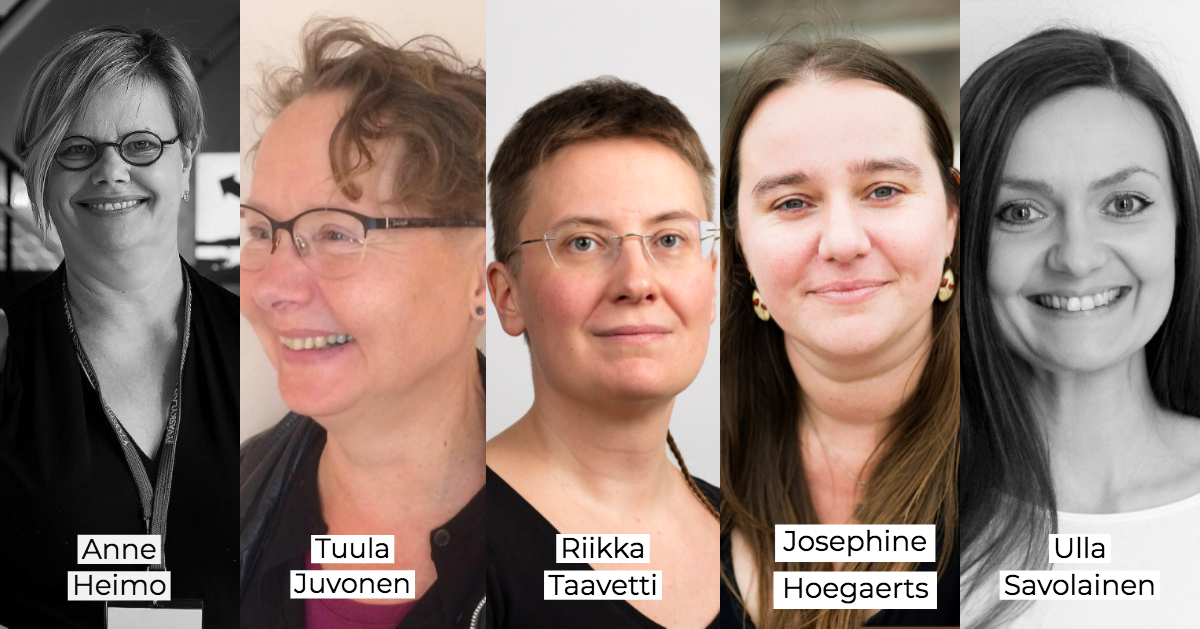
Theatre Academy, C staircase, Room 535 (Haapaniemenkatu 6, Helsinki)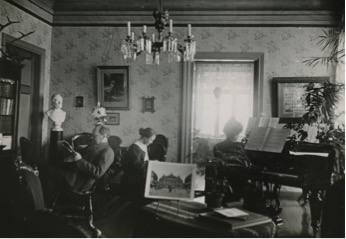
For more information on the programme, see the CfAR webpage here
Artium, Hovi V105 (University of Turku, Kaivokatu 12) 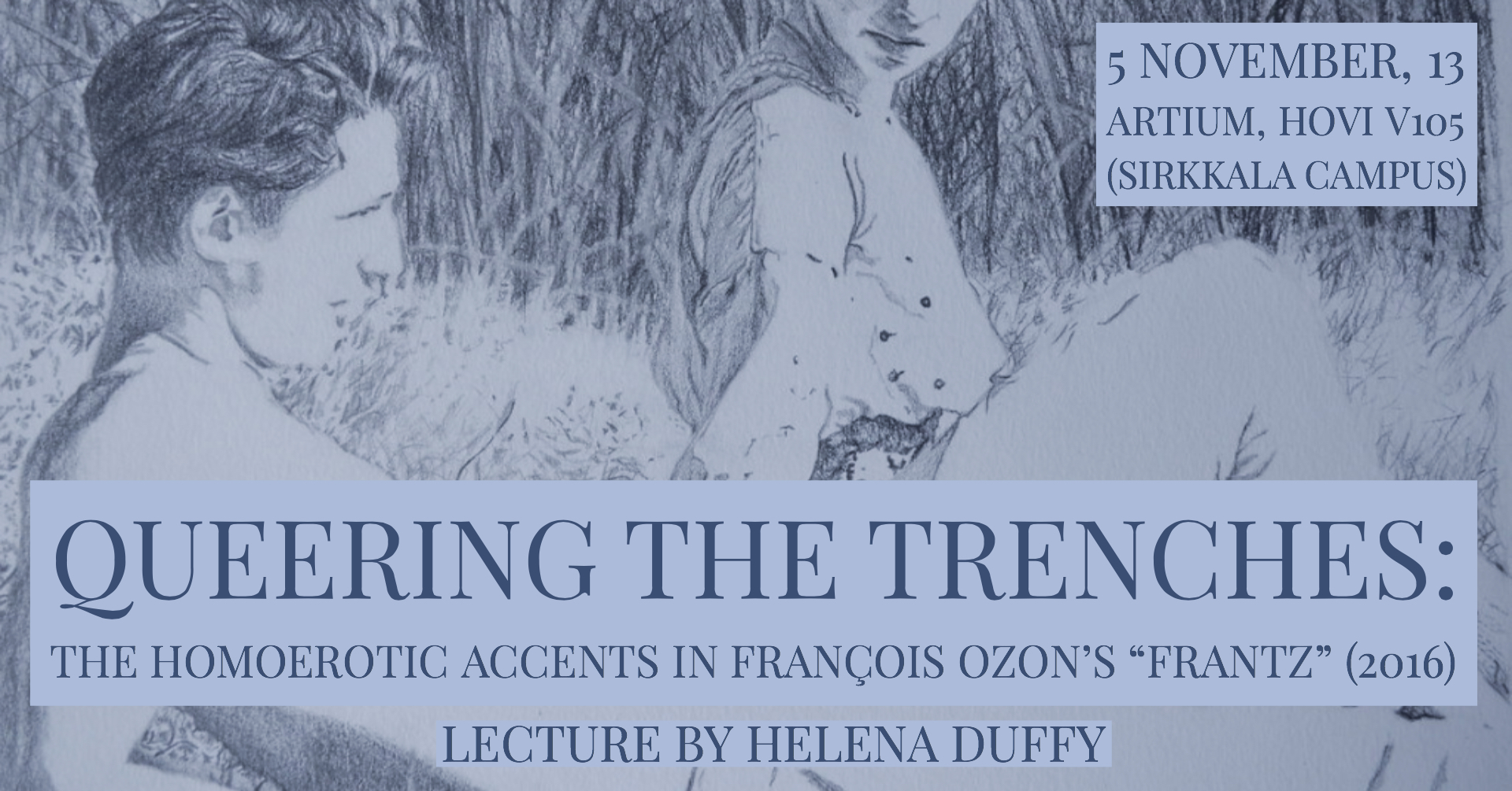 Frantz (2016) is not the first adaptation undertaken by French film director François Ozon and, characteristically for the maker of 8 Femmes (2002) or Swimming Pool (2003), this recent film revisits a relatively obscure source text. As a remake of Maurice Rostand’s play L’Homme que j’ai tué (1930) and Ernst Lubitsch’s film Broken Lullaby (1932), Frantz appears to belong to ‘heritage cinema’. Critics such as Fredric Jameson (1991), Andrew Higson (2004) or Linda Hutcheon (2013) have associated the genre with nostalgia and conservative values, accusing it of projecting an elite version of the national past and of portraying the nation as a site of heteronormative reproductive futurism. However, as a postmodern film which, to put it in Hutcheonean terms, both uses and abuses the narrative convention it inscribes, Frantz evidently challenges values attached to ‘heritage cinema’. By queering death in the trenches, Ozon, as I contend in this presentation, explores both the association between queerness and the negation of reproductive futurism postulated by Leo Edelman (2004) and the linked conception of the queer as the site of society’s death drive. The film reinforces this connection by making the eponymous character’s death in a rectum-like trench both the starting point and the culmination of the imaginary relationship between Frantz and Adrien, and by placing Manet’s Le Suicidé in the intertextual backdrop of their homoerotically tinged interactions. Correlatedly, by queering Frantz’s death, Ozon destabilises the conception of war as a gendered and gendering experience capable of reinvigorating postwar society with physically and morally virtuous masculinities. But, identified with pacifism, queerness serves not only to reinforce the film’s obvious anti-war message but also, more broadly, to criticise modernity with its faith in humanity’s uninterrupted progression towards future. By showing Anna’s hopes for a relationship with Adrien dashed and by having her contemplate Le Suicidé in the closing scene, the film confirms its resistance to normative social order embodied by Anna’s aggressively heterosexual suitor Kreutz. Indeed, Frantz blames this order for the carnage of World War I and, given the unrelenting nationalism and thirst for revenge on both sides of the Franco-German border, potentially also for the forthcoming atrocities of World War II.
Frantz (2016) is not the first adaptation undertaken by French film director François Ozon and, characteristically for the maker of 8 Femmes (2002) or Swimming Pool (2003), this recent film revisits a relatively obscure source text. As a remake of Maurice Rostand’s play L’Homme que j’ai tué (1930) and Ernst Lubitsch’s film Broken Lullaby (1932), Frantz appears to belong to ‘heritage cinema’. Critics such as Fredric Jameson (1991), Andrew Higson (2004) or Linda Hutcheon (2013) have associated the genre with nostalgia and conservative values, accusing it of projecting an elite version of the national past and of portraying the nation as a site of heteronormative reproductive futurism. However, as a postmodern film which, to put it in Hutcheonean terms, both uses and abuses the narrative convention it inscribes, Frantz evidently challenges values attached to ‘heritage cinema’. By queering death in the trenches, Ozon, as I contend in this presentation, explores both the association between queerness and the negation of reproductive futurism postulated by Leo Edelman (2004) and the linked conception of the queer as the site of society’s death drive. The film reinforces this connection by making the eponymous character’s death in a rectum-like trench both the starting point and the culmination of the imaginary relationship between Frantz and Adrien, and by placing Manet’s Le Suicidé in the intertextual backdrop of their homoerotically tinged interactions. Correlatedly, by queering Frantz’s death, Ozon destabilises the conception of war as a gendered and gendering experience capable of reinvigorating postwar society with physically and morally virtuous masculinities. But, identified with pacifism, queerness serves not only to reinforce the film’s obvious anti-war message but also, more broadly, to criticise modernity with its faith in humanity’s uninterrupted progression towards future. By showing Anna’s hopes for a relationship with Adrien dashed and by having her contemplate Le Suicidé in the closing scene, the film confirms its resistance to normative social order embodied by Anna’s aggressively heterosexual suitor Kreutz. Indeed, Frantz blames this order for the carnage of World War I and, given the unrelenting nationalism and thirst for revenge on both sides of the Franco-German border, potentially also for the forthcoming atrocities of World War II.
Followed by a Round Table
Porthan Hall, Maaherran Makasiini (Henrikinkatu 10, Turku)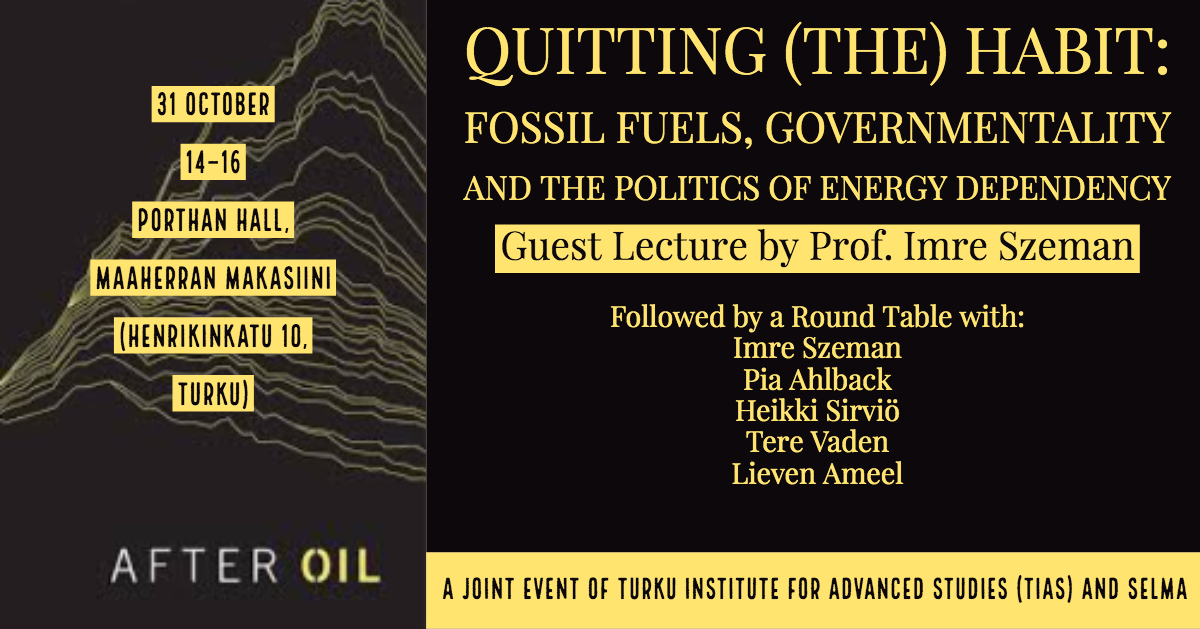
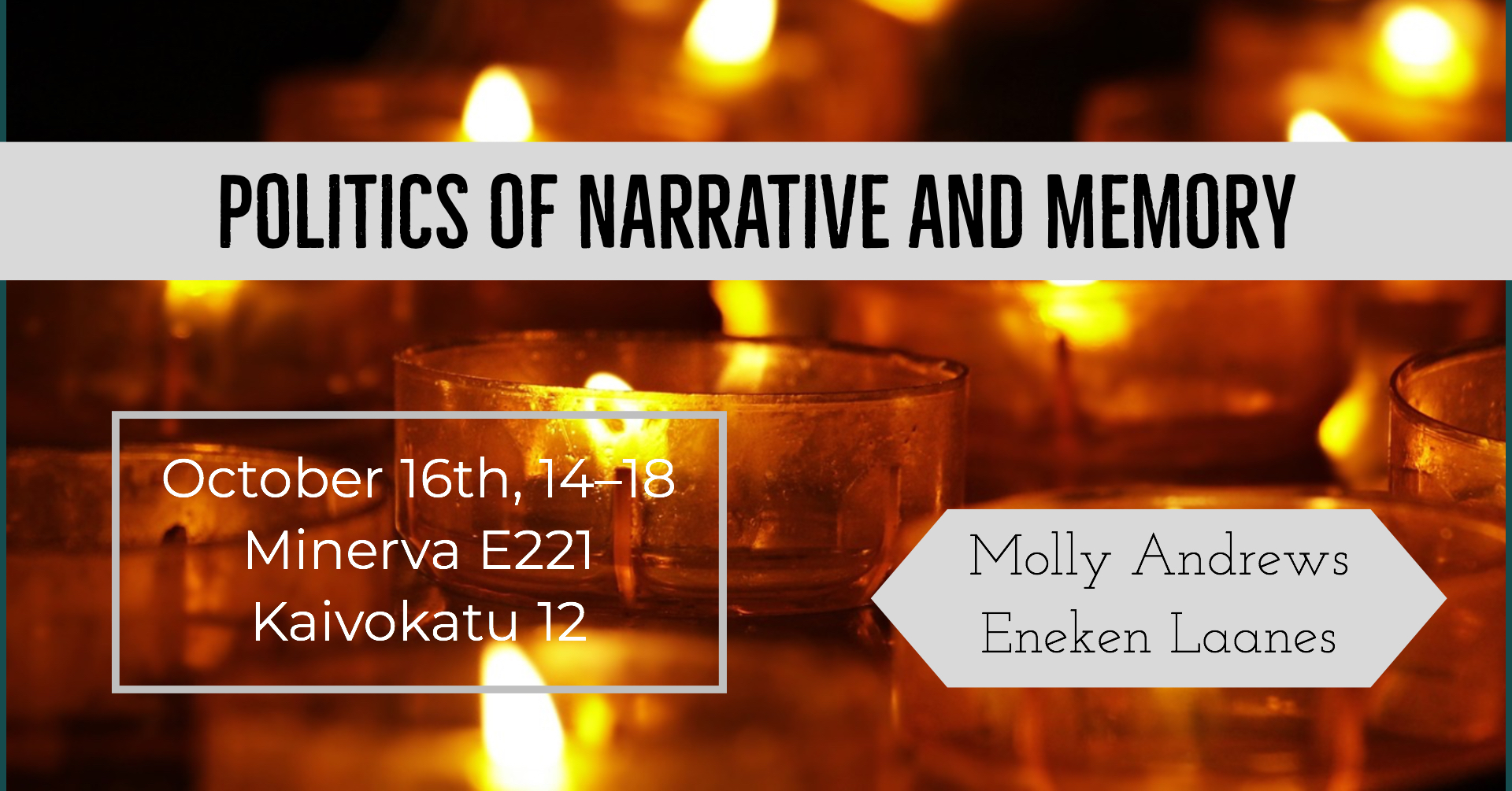
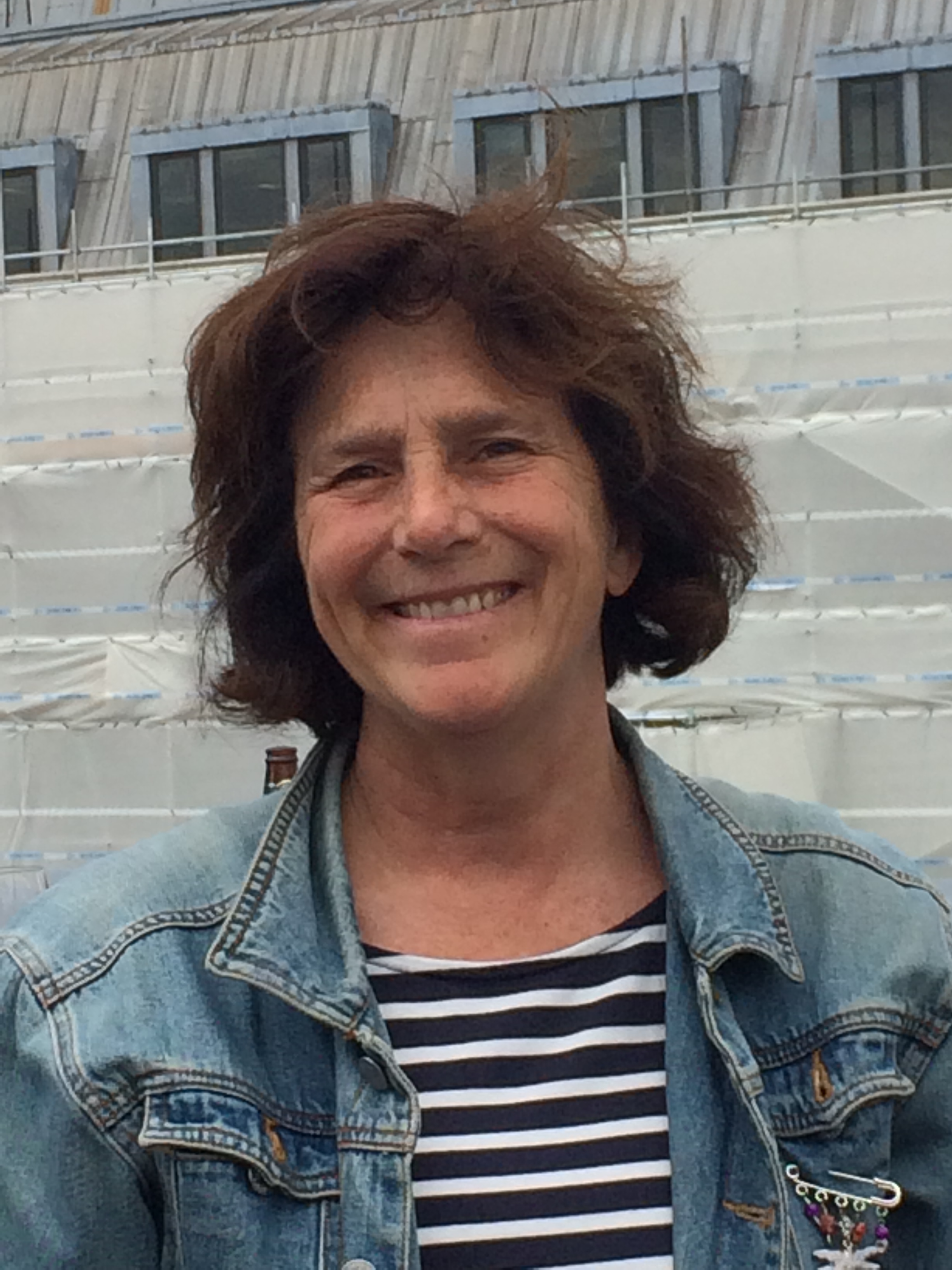
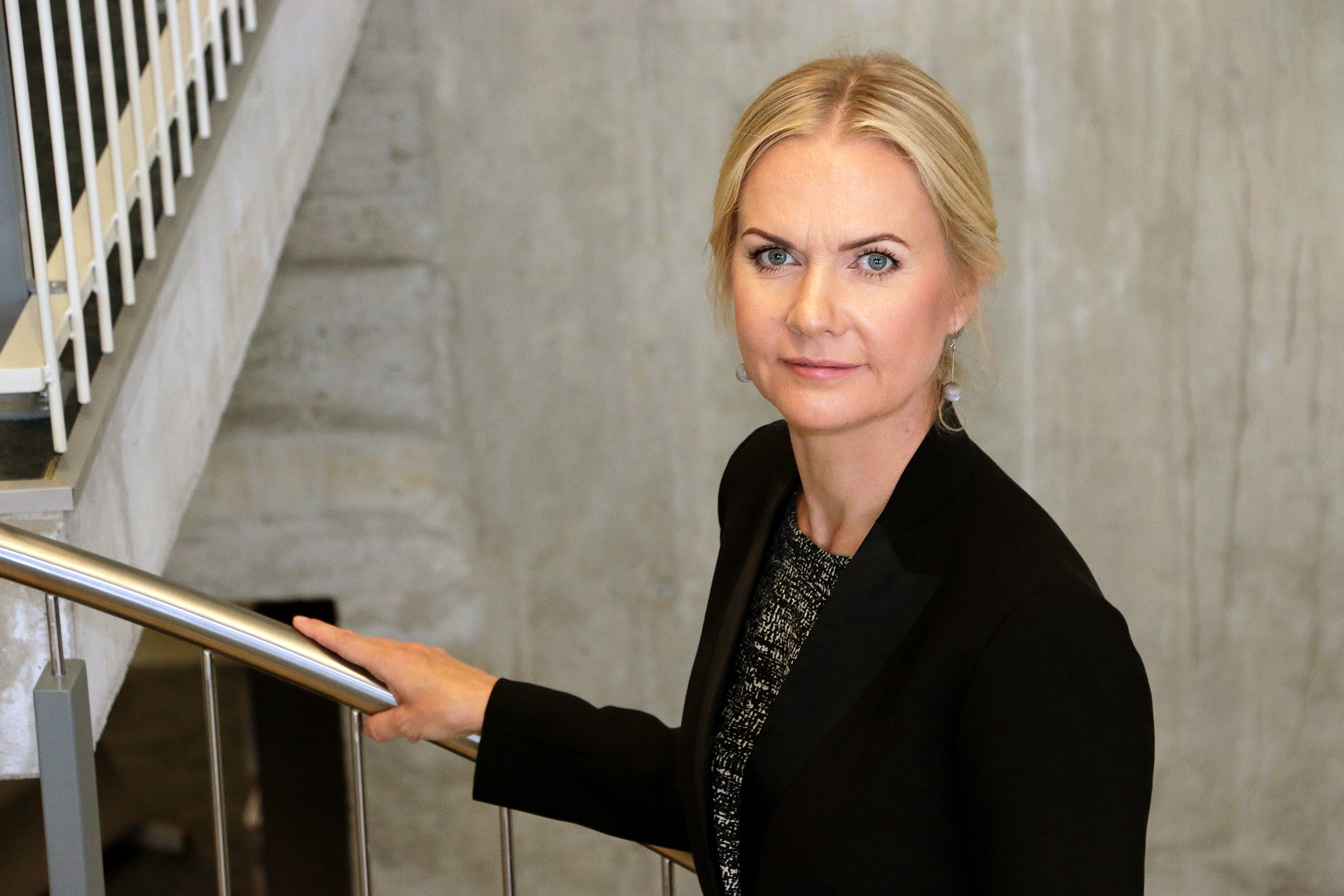
Eneken Laanes by Piret Räni/Tallinn University
WE APOLOGIZE FOR THE INCONVENIENCE
Minerva E119 (University of Turku, Kaivokatu 12)